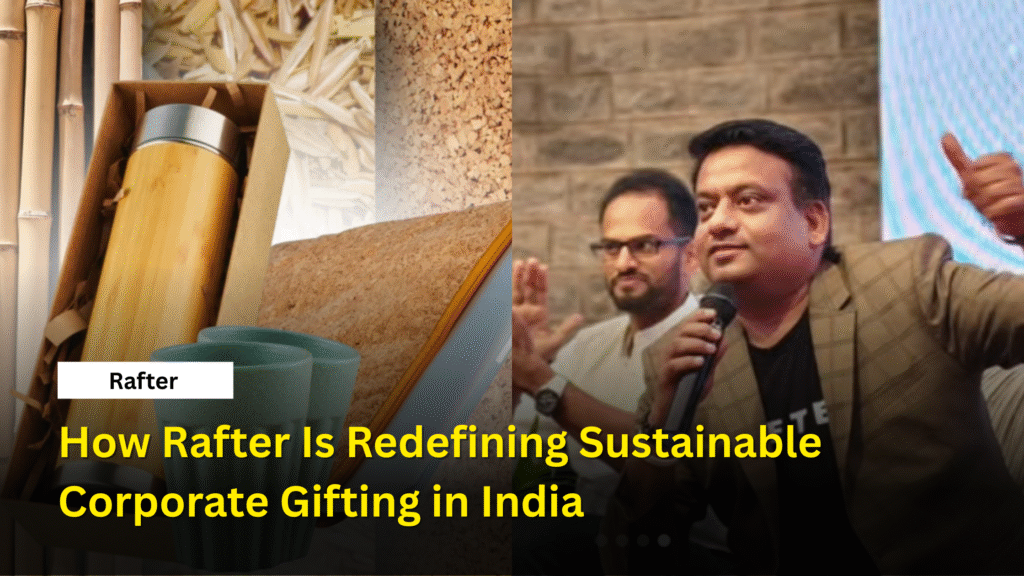Turning Farming into a Financial Opportunity
Prabhat Kumar, an electrical engineer, returned to his village in Gaya, Bihar in 2015. He saw
farmers working endlessly but earning as little as ₹10,000 per acre per year from rice or
wheat. Determined to change this, he founded SumArth, an NGO that empowers farmers to
switch to high-value horticulture crops and boost their earnings.
Today, SumArth supports around 25,000 farmers across 500 villages in six districts,
helping them shift from low-profit traditional farming to farming crops with better market value
and consistent income.
Identifying the Main Challenges
Local farmers believed their land could only grow rice or wheat. They relied on middlemen
for seeds, fertilisers, and sales—often losing profits. Prabhat realized this system made
farmers powerless and poor. He decided to train them in growing cash crops like onions,
mushrooms, baby corn, and sweet corn, with full support from seed to sale.
From a Small Trial to Big Returns
SumArth began with just 11 farmers growing onions on a test plot. They introduced basic
storage silos so farmers could hold onions and sell when prices rose—resulting in incomes
as high as ₹1 lakh per acre, sometimes four times what they earned before.
Building on that success, SumArth set up low-cost mushroom units. Farmers could start
earning within 45 days. Quickly, 2,000 farmers were producing 600 kg of mushrooms
daily, and 5,000 farmers had successful onion crops. The NGO also introduced training
on baby corn, sweet corn, and strawberries—driving further income growth
Building Infrastructure for the Future
The biggest investment came with a processing facility in Gaya—a first in the region. This
unit can process up to 10,000 kg of produce every day, extending shelf life from just 24
hours to as much as 24 months. Now, farmers can avoid spoilage and access wider
markets.
Empowering Communities and Women Farmers
One of SumArth’s biggest wins: empowering women. Nearly 75% of participants are
women, many launching mushroom units at home and earning ₹10,000–12,000 within a
month. This income model aligns with household responsibilities and boosts their
confidence.
SumArth uses tools like climate sensors and automated sprinklers during training and helps
set up Producer Groups so farmers can directly sell and retain more profits.
Scaling Impact and Creating Value
In the past decade, farmers under SumArth have earned over ₹100 crore, including ₹23
crore in the last year alone. Now, the NGO plans to expand across Bihar—and
beyond—by helping farmers process produce into value-added goods to earn even more.
Overcoming Obstacles with Resilience
The journey began in makeshift storage—Henik’s small home in Dombivli was a warehouse.
Logistics and manual labour were heavy burdens. They faced doubts, but fast results and
fairness won trust. Now backed by Farmer Producer Organisations and partnerships with
ATE Chandra, NABARD, and ICICI, SumArth is a registered and respected name.
Conclusion
SumArth’s story shows that with smart training, a clear vision, and community
support, farmers can double their income and transform rural livelihoods. From onions
and mushrooms to larger facilities, this initiative is turning traditional farming into profitable,
dignified work.
Story Featured on TheMarketingMirror.com
At The Marketing Mirror, we shine a spotlight on startups and changemakers shaping
India’s future. SumArth’s journey—helping farmers earn better income and embracing
sustainable agriculture—is exactly the kind of transformation we want to share.
Have a startup or grassroots initiative making a real impact?
📩 Submit your story at The Marketing Mirror and inspire others across the country.



